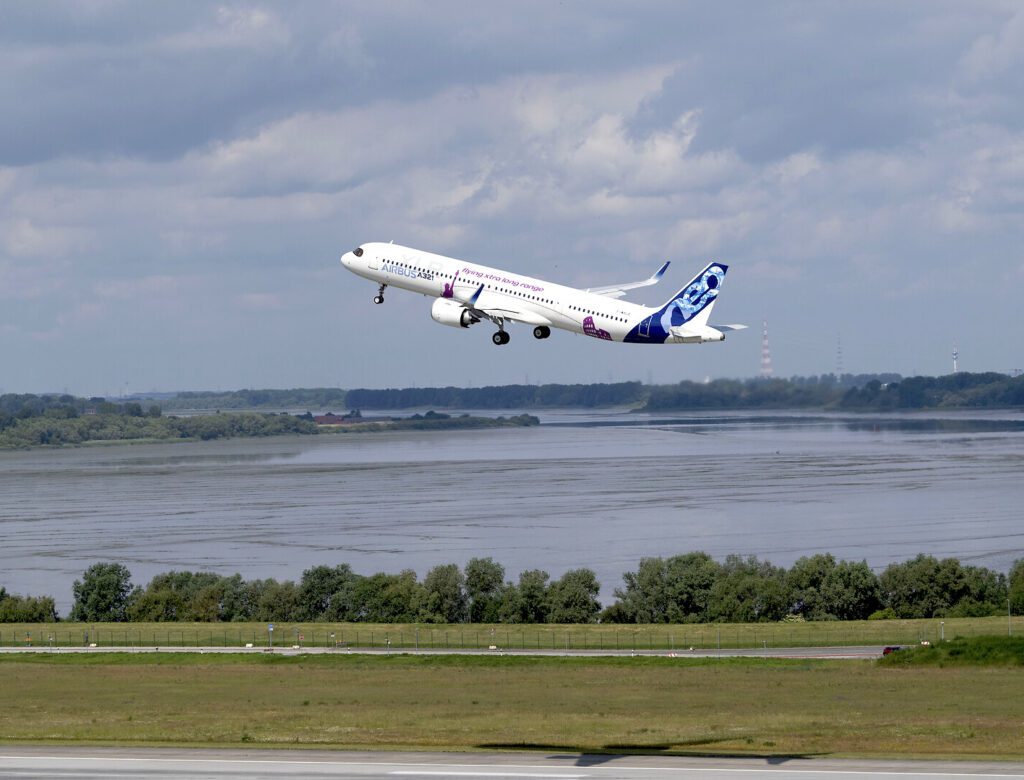
A new report published by the U.S. Government Accountability Office compares regulatory approaches to certifying new airplane designs, such as the A321XLR pictured during its first flight here, by EASA and the FAA. (Photo courtesy of Airbus)
A new report published by the U.S. Government Accountability Office (GAO) found key differences in the approaches used by the European Union Aviation Safety Agency (EASA) and Federal Aviation Administration toward compliance and verification engineering activities for the certification of new and modified commercial airplane designs.
The 48-page report was compiled by GAO based on interviews primarily with officials representing both civil aviation regulatory agencies, Airbus, Boeing, and other aviation industry OEMs. One interesting discovery reported by GAO’s researchers pertains to the difference in how EASA regulates Design Organisations (DO) versus FAA’s regulation of companies that have Organization Designation Authorization (ODA) approvals.
“FAA is responsible for making airplane certification compliance determinations but generally delegates the vast majority of these determinations for manufacturers to make on its behalf,” GAO writes in the report. “However, EASA officials told us manufacturers in Europe are themselves responsible for making all compliance findings and verification under oversight of EASA.”
EASA prohibits its own compliance verification engineers from providing verification compliance services on systems or designs that they have worked on as an employee of that manufacturer. The European agency also requires Design Organisations to feature participation from all engineering units of an OEM’s company that contribute directly to a product’s design, type certification, and compliance activities. Aviation OEMs in the U.S., however, typically only have certification compliance activities completed by those experts who have been delegated to complete them within a specialized ODA unit of the company.
Based on interviews with multiple aviation stakeholders about this difference between how DOs and ODAs are structured, GAO concludes that “because a Design Organisation includes more parts of the manufacturer’s company, this means EASA evaluates more aspects of the manufacturer’s company when approving and overseeing the Design Organisation than FAA does for ODA holders.”
Several steps are being taken by the FAA to improve its certification process and the level of approval and oversight administered to ODA units for compliance and verification activities, according to findings reported by GAO. As an example, in February, the FAA announced plans to expand its use of Technical Advisory Boards that conduct independent technical reviews of certification projects for new and modified commercial airplane designs.
The FAA is also developing a new set of metrics that will measure the performance of its aircraft certification process, according to the report.